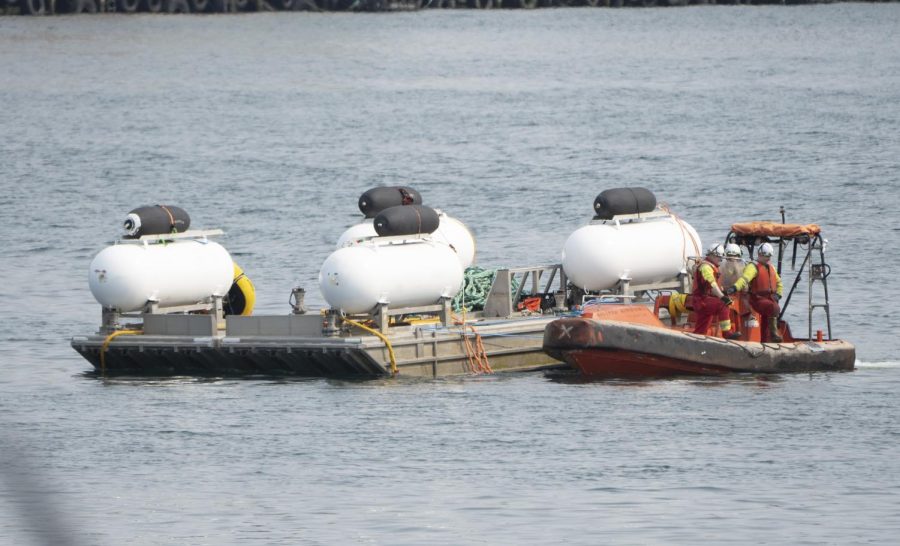Editorial | The submersible catastrophe reminds us that regulations are important and that nobody is exempt from them
Adrian Wyld/The Canadian Press via AP
The Titan launch barge is moved to the Coast Guard yard at port in St. John’s, Newfoundland, on Saturday, June 24, 2023. The Titan submersible imploded near the wreckage of the Titanic, killing all five people on board, the U.S. Coast Guard announced Thursday, June 22.
June 27, 2023
If you’ve been following the news the last week, you may have heard of the Oceangate submersible catastrophe. A Titanic-bound submersible owned and operated by the company Oceangate lost contact with its mothership an hour and a half into its nine-hour voyage on Sunday, June 18. An intact submersible was never found despite best efforts. The US Coast Guard relayed in a news conference on Thursday, June 22 that pieces of the submersible were detected, indicating an implosion.
In the destruction, five people were killed — two wealthy businessmen, one of their sons, an explorer and the CEO of Oceangate. But in all of this tragedy, we must also recognize the incredibly ignorant and dangerous actions of the Oceangate company that led to the death of these individuals.
The hubris and disregard for safety regulations displayed by CEO Stockton Rush and his company were profound. Oceangate was notified of safety concerns as far back as 2018.
David Lochridge was a submarine pilot who worked for the company between 2015 and 2018 before he was fired. He alleges he was fired unjustly because he made his concerns of the Titan, the submersible in the recent catastrophe, known. He made note of the lack of unmanned testing of the vehicle, and he also worried about the porthole used in the vessel — it was only rated to withstand pressure at 1,300 meters, but the Titan intended to go 4,000. His concern that most likely led to the Titan’s tragic final voyage was about the alarm system, which would only go off milliseconds before an implosion. After Lochridge detailed his scathing review of the Titan, dozens of other industry leaders and explorers wrote to Rush about their concerns. Rush ignored these messages in the name of innovation and exploration, seemingly protecting his desires above the safety of those who wanted to take a trip to the Titanic.
While we can point to many issues that plagued the Titan’s failed journey, it does demonstrate the importance of following safety regulations and that nobody is exempt from such rules. A psychologist has claimed that the wealthy do not follow the rules as much as others. Fines and regulations do not deter many of the wealthy like they do to the poor, meaning that it is much easier to ignore them because it is a minor inconvenience to their immense wealth. Sometimes the saying “rules are made to be broken” doesn’t apply — safety regulations must be followed at all times to prevent similar incidents from occurring. The purpose does not matter when you are committing such violations.
Let the Oceangate catastrophe be a reminder that just because you are wealthy, that does not mean you get to ignore the regulations set in place, especially when it comes to safety compliances. Innovation and exploration is not worth the cost of life. It was disrespectful to the lives that people put in Oceangate’s hands to ignore the safety concerns of several individuals.




